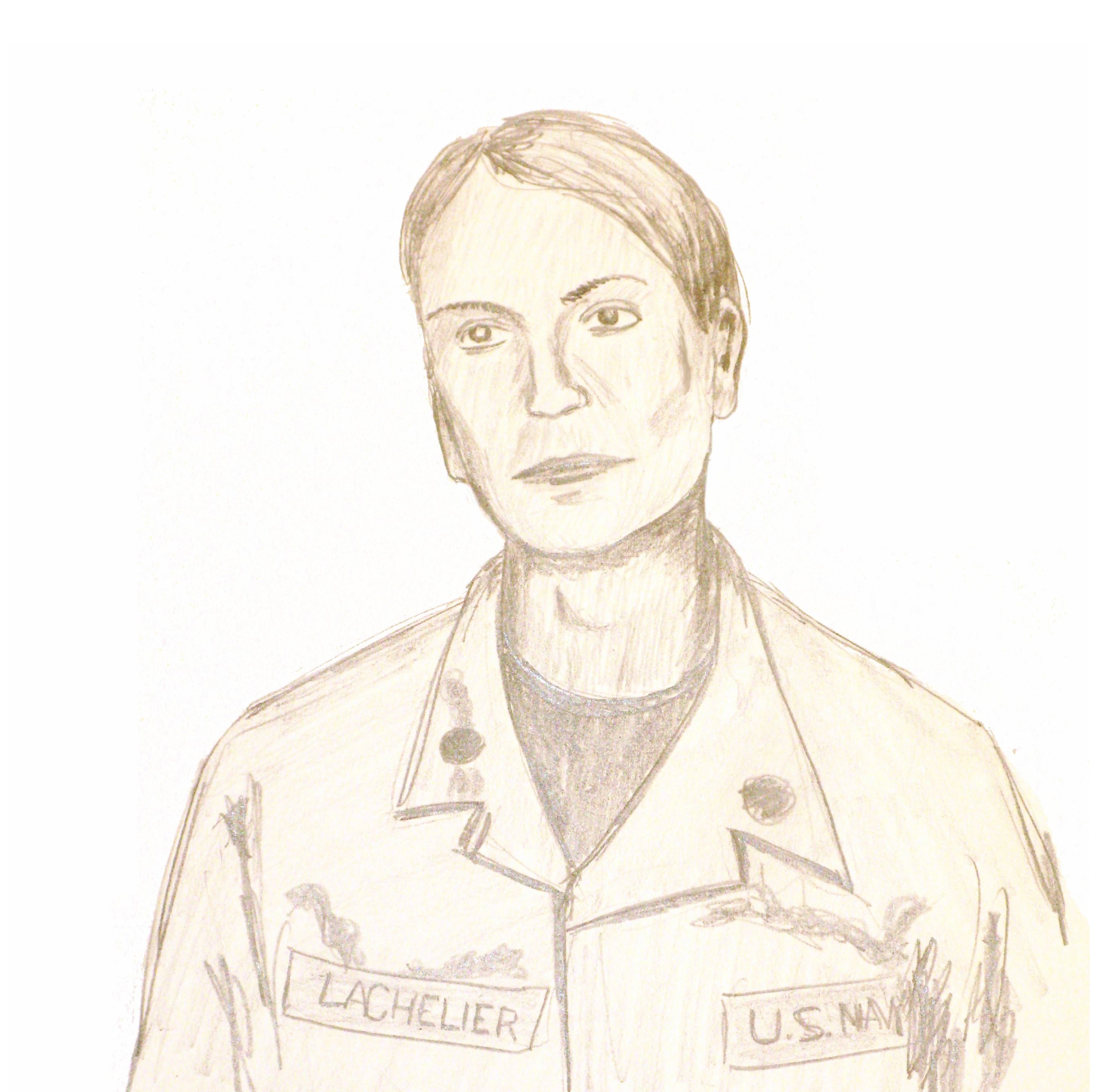Suzanne Lachelier
| The below content is licensed according to Creative Commons Attribution-ShareAlike License contrary to the public domain logo at the foot of the page. It originally appeared on http://en.wikipedia.org. The original article might still be accessible here. You may be able to find a list of the article's previous contributors on the talk page. |
Suzanne Lachelier (born 1967 in New York) is an American lawyer and Commander in the United States Navy reserves. Now a civilian,[1] she was among the military attorneys assigned to defend detainees at Guantanamo Bay detention camp.[2][3] She is the first defense lawyer to be allowed to a top-secret location, known as Camp 7 or Camp Platinum, where former CIA detainees are held at Guantanamo.[2] Lachelier is notable for the legal struggle she waged in order to meet her client, Ramzi bin al-Shibh, who had refused to leave his cell. Lachelier no longer represents Guantanamo detainees.[4]
Early life and education
Suzanne Lachelier was born in New York in 1967. She moved with her family to Orgeval, France, where she lived until 1983. She is fluent in French and English. She graduated from Boston University School of Law in 1992.
Career
Lachelier is a reserve officer in the Judge Advocate General Corps of the military.
She is one of the officers assigned to defend high-value detainees at Guantanamo Bay detention camp before military commissions. She is notable for the legal struggle she waged in order to meet her client, Ramzi bin al-Shibh, who refused to leave his cell. She was worried that he was suffering from mental illness.[3]
These former CIA detainees were held in a top-secret location in the complex. When they were transported to and from court and other locations, they had to wear hoods to prevent their seeing anything.[3]
She petitioned the Presiding Officer of the military commissions to be allowed to visit al-Shibh at the secret site. She had been prohibited from visiting al-Shibh, as she did not have the clearance to know its location. She offered to wear a hood, while being transported to and from the site, so she would not learn its location or character.[3]
On 18 November 2008, Lachelier and her co-counsel, Rich Federico, were allowed to visit the site without being forced to wear hoods.[3] They were transported in the same windowless van used to transport the detainees, so they could see nothing and could not learn the camp's location.[5] She was particularly concerned about Bin al Shibh's mental health.
During the earlier, Presidentially authorized, military commissions, struck down by the United States Supreme Court in Hamdan v. Rumsfeld (2006), suspects were not allowed to defend themselves, nor were they free to choose not to attend their commissions. The military commissions that were later authorized by the United States Congress, through the Military Commissions Act of 2006
Lachelier also defended Ibrahim Al Qosi.[6] She played a key role in arranging for him to make his first phone call home to Sudan.[7][8][9][10] Military prosecutors asked the judge to order Lachelier to continue to represent Qosi at a 2017 fact-finding hearing, but in a court filing she claimed to be unable to do so due to a conflict of interest.[1]
By December 2013 Lachelier had retired from the military and was serving as a civilian defense counsel to Mustafa al-Hawsawi.[6]
References
{{reflistrefs=
Cite error: Closing</ref> missing for <ref> tag- ↑ 1.0 1.1 Carol Rosenberg (July 13, 2017). "First war-court hearing on U.S. soil stops before it even gets started". Miami Herald: p. 10A.
- ↑ 2.0 2.1 "Lawyer gains access to Gitmo's secret 'Camp 7'". USA Today. 2008-10-28. https://www.usatoday.com/news/topstories/2008-10-28-3285754460_x.htm. Retrieved 2010-01-16.
- ↑ 3.0 3.1 3.2 3.3 3.4 Carol Rosenberg (2008-11-18). "Navy lawyers inspect secret prison camp". Miami Herald. http://www.miamiherald.com/news/americas/guantanamo/story/777756.html. Retrieved 2008-11-19.
- ↑ Carol Rosenberg (May 27, 2015). "No more Big Macs, other treats at Guantanamo legal meetings". Miami Herald.
- ↑ "Lawyers See Secret Section of Gitmo". The Ledger. 2008-11-17. p. A14. http://www.theledger.com/article/20081119/NEWS/811190346. Retrieved 2009-07-28.
- ↑ 6.0 6.1 Rachel Hajjar (2022). The War in Court: Inside the Long Fight against Torture. University of California. ISBN 0520378938.
- ↑
Carol Rosenberg (May 22, 2008). "Terror suspect phones Sudan to hire own lawyer". Miami Herald. Archived on May 25, 2008. Error: If you specify
|archivedate=, you must also specify|archiveurl=. http://www.miamiherald.com/news/breaking_news/story/543147.html. Retrieved 2008-05-25. "Within hours of a judge's order, an accused al Qaeda conspirator from Sudan got a call from home Thursday to consult with his family on how they might hire him a lawyer, at their own expense." - ↑ "Guantanamo judge orders military to allow detainee phone call home to Sudan". International Herald Tribune. May 22, 2008. http://www.iht.com/articles/ap/2008/05/22/news/Guantanamo-Military-Tribunal.php. Retrieved 2008-05-25.
- ↑ Carol Rosenberg (May 24, 2008). "Guantánamo: Detainee didn't get call from home". Miami Herald. http://www.miamiherald.com/news/breaking_dade/story/545741.html. Retrieved 2008-05-25. "A military spokesman erred last week by telling journalists that an alleged al Qaeda conspirator at Guantánamo received a Red Cross-assisted telephone call from home."
- ↑ Jane Sutton (May 24, 2008). "Guantanamo phone report was in error, U.S. says". Reuters. http://africa.reuters.com/wire/news/usnNASU52401.html. Retrieved 2008-05-25.
